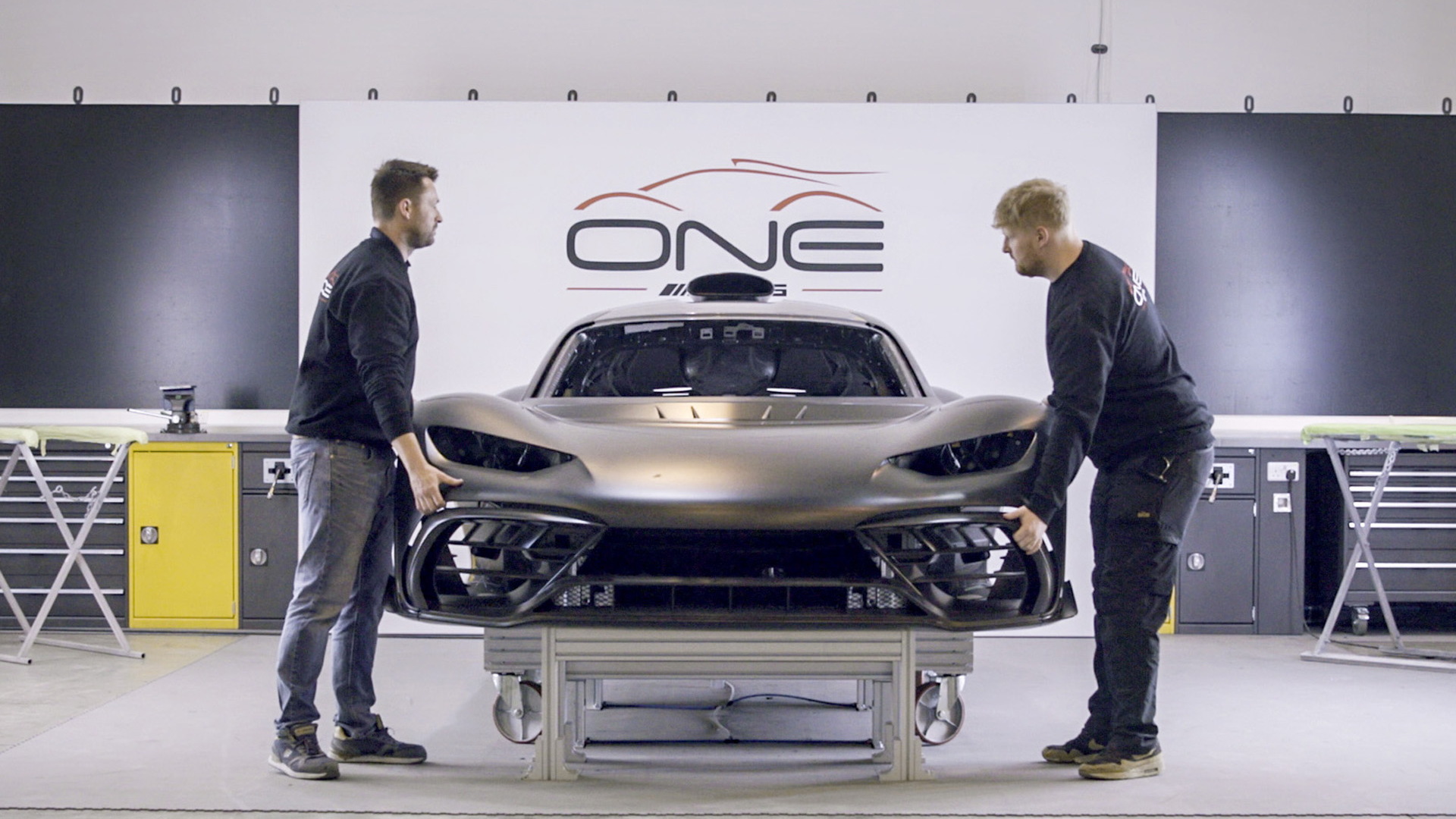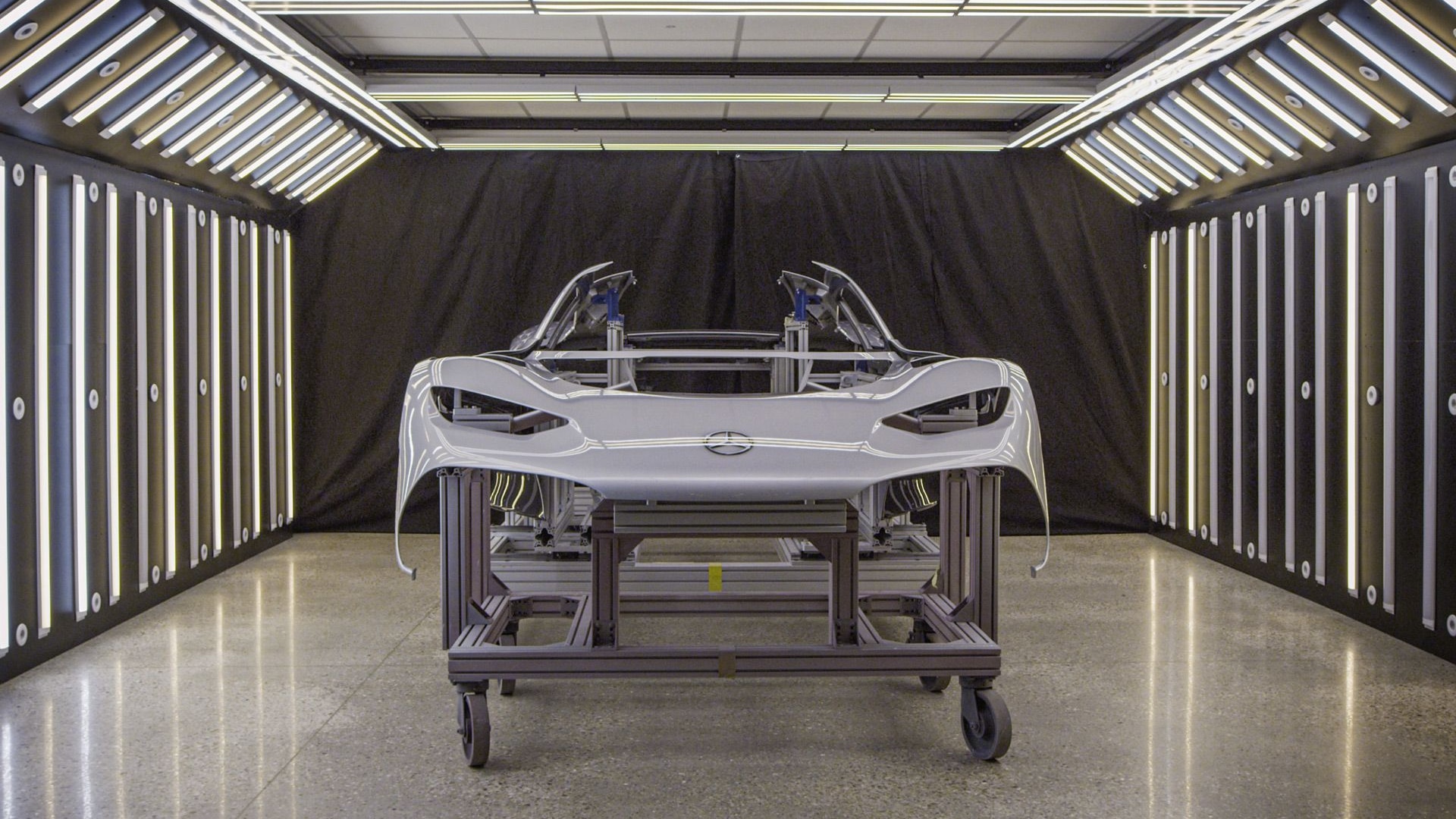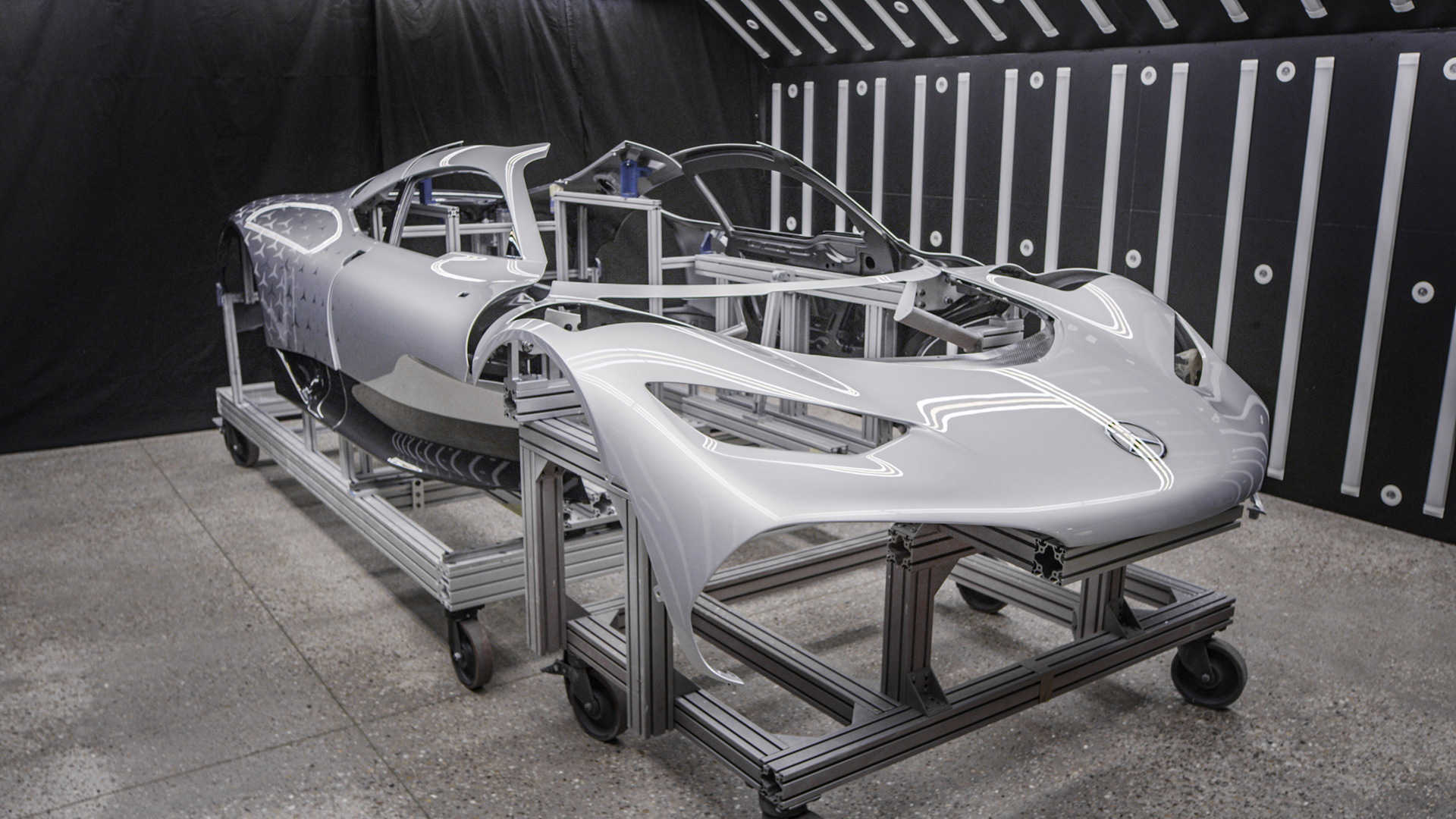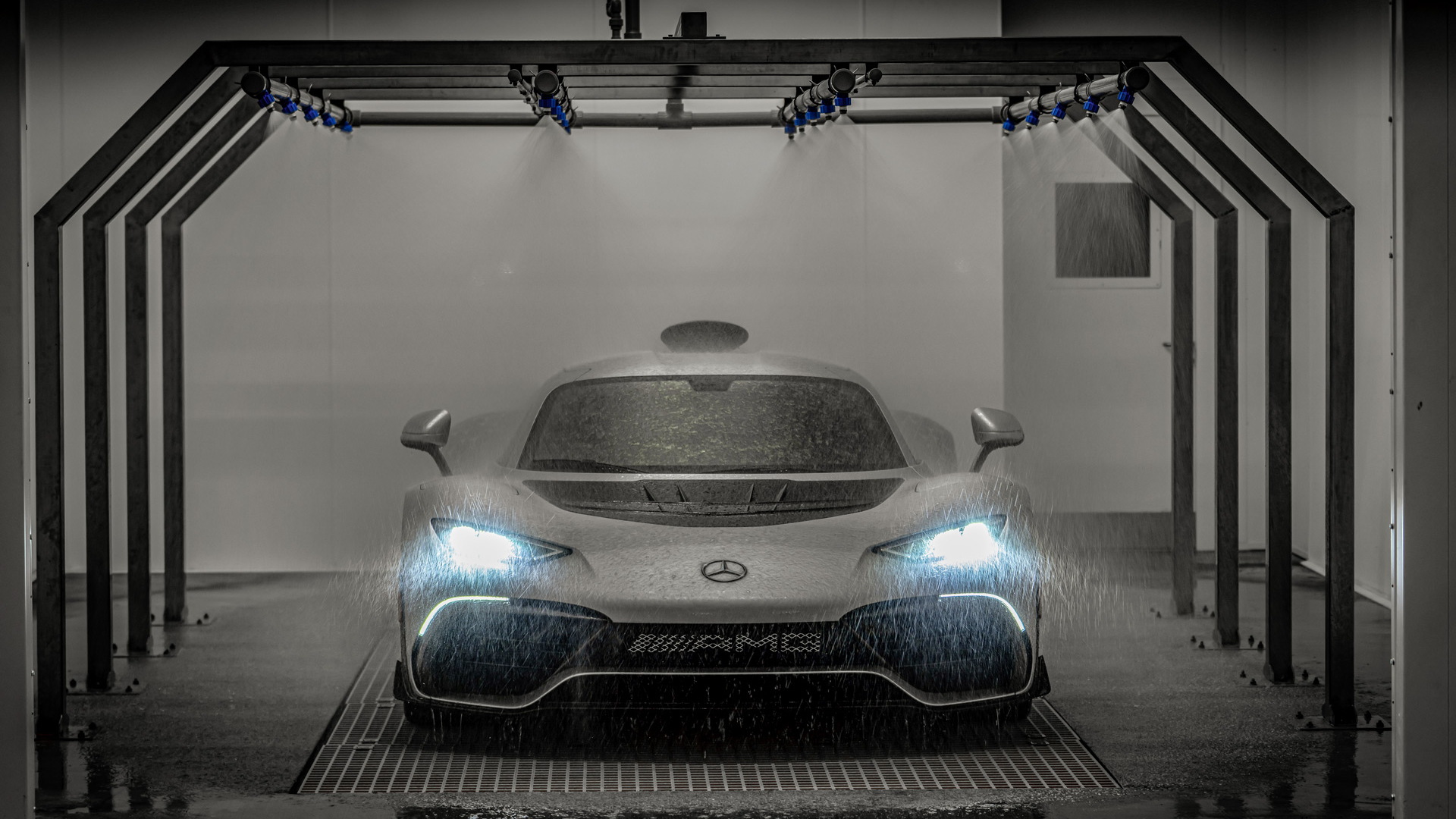Customer examples of the Mercedes-Benz AMG One hypercar are now in production at a dedicated facility in Coventry, U.K., five years after the car was first shown.
Just 275 will be built, and the first will be delivered to its owner in the second half of 2022. All build slots are gone, even with the starting price set at a lofty 2.275 million euros (approximately $2.3 million).
Given the close relationship between the One and Mercedes' Formula 1 cars (the engine is common, after all), it shouldn’t be a surprise the hypercar is built in the U.K. Mercedes' F1 team may race under a German license but the team is very much based in the U.K. The race cars are built in Brackley, northwest of London, while the power units are sourced from nearby Brixworth.
Mercedes‑Benz AMG High Performance Powertrains, which develops and builds the power units for the F1 cars, also builds the One's powertrain. Interestingly, the Brixworth-based outfit has been involved in the One project right from the start. In fact, the project initially came to life in 2015 when former AMG chief Tobias Moers asked Andy Cowell, who until 2020 was responsible for the F1 team’s power units, whether the engine in the F1 cars could be used in a road car.
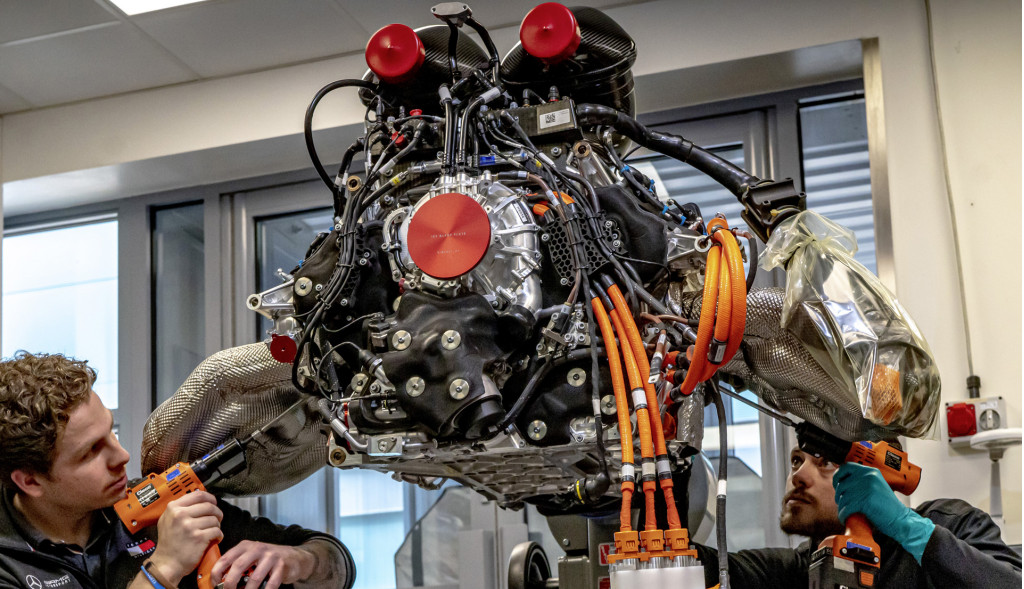
Mercedes-Benz AMG One production in Coventry, U.K.
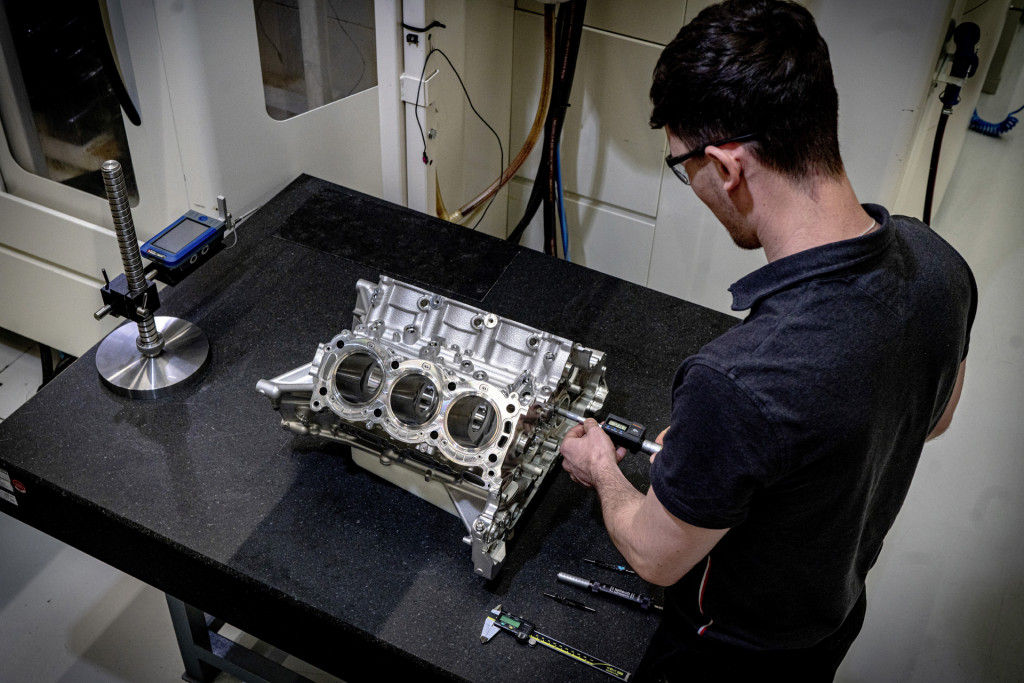
Mercedes-Benz AMG One production in Coventry, U.K.
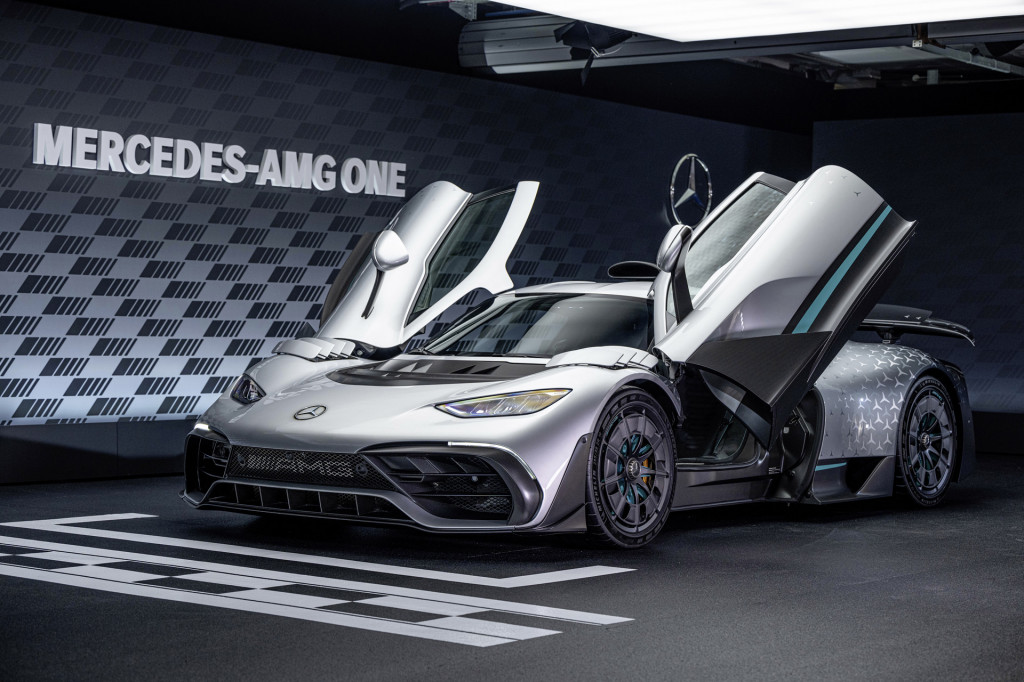
Mercedes-Benz AMG One
The engine is a turbocharged 1.6-liter V-6, specifically the design from Mercedes' championship-winning race car from the 2015 F1 season. But the rest of the One's powertrain is actually more sophisticated than in the F1 car. While in the race car there's only the turbo V-6 and a motor-generator driving the rear wheels, plus a second motor-generator integrated with the turbocharger, the One has two additional motor-generators. These drive each of the front wheels and provide the One with all-wheel drive. Peak output is 1,049 hp, though the car is relatively heavy for a two-seater, weighing in at 3,737 lb, or close to the weight of a Ford Mustang GT.
As for the rest of the One's production, AMG worked closely with Canada's Multimatic, the same company that built the Ford GT, to source the carbon-fiber monocoque with a bonded-in roof, and establish the car's production line. It takes around 50 people to build each of the cars, and that doesn't include the powertrain. There are 16 key steps to each build, starting with the assembly of key components and ending with a wet weather test and final drive. After each step, there are multiple quality checks, the results of which are recorded in detail in documentation of the production process.
Once everything is complete, the cars are wrapped in protective material for transport and shipped via truck to AMG's headquarters in Affalterbach, Germany, for delivery. Note that even though many build slots went to customers in the U.S., AMG wasn't able to certify the car and its finicky engine for sale here without a substantial loss in performance. Fortunately there is some hope for U.S. customers looking to bring home their Ones in the form of the Show or Display rule. Under the rule, non-U.S. certified cars with historical or technological significance can be granted permission for private import, albeit with restrictions, such as annual mileage limited to 2,500 miles.
Performance estimates for the One include a 0-62 mph time in 2.9 seconds and a top speed capped at 219 mph, likely due to the aerodynamics. A production car lap record of the Nürburgring is also likely. The time to beat is the 6:43.61 set by AMG's GT Black Series in 2020.
